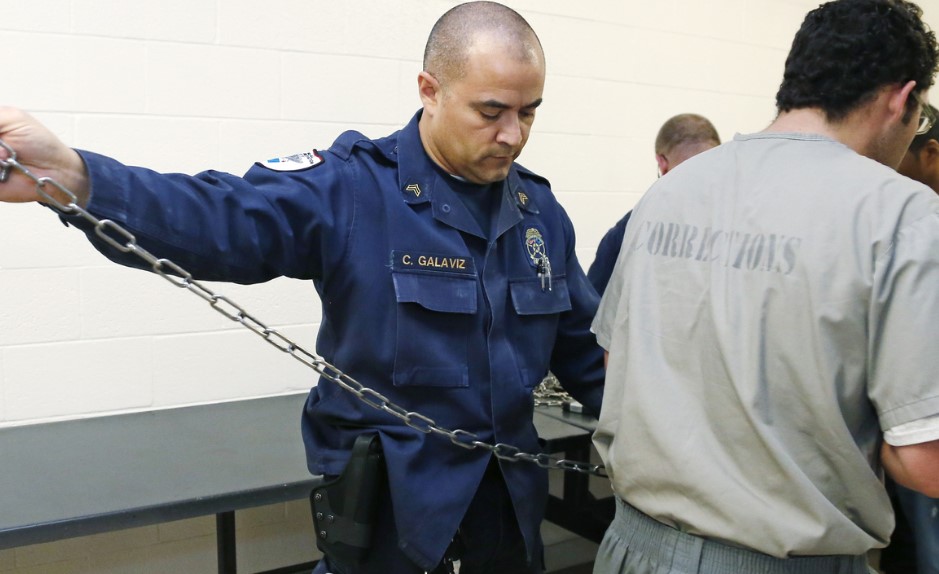Correctional officers play a crucial role in maintaining order and security within correctional facilities, ensuring the well-being of both inmates and staff. Let’s dive into the details of the Correctional Officer job description, shedding light on the qualifications, responsibilities, challenges, and opportunities associated with this impactful profession.
Introduction
Correctional officers are the unsung heroes working behind the walls, ensuring the safety and security of correctional facilities. Their role is pivotal in maintaining order, preventing escapes, and facilitating rehabilitation programs for inmates.
Qualifications and Requirements
Educational Background
Correctional officers typically need a high school diploma or equivalent. Some institutions may require additional education or college credits.
Physical Fitness
Physical fitness is crucial for correctional officers, as the job often involves strenuous activities, including patrolling, restraining inmates, and responding to emergencies.
Psychological Assessment
Candidates undergo psychological assessments to ensure they can handle the mental and emotional challenges of the job, including dealing with potentially volatile situations.
Key Responsibilities
Inmate Supervision
Correctional officers are responsible for monitoring inmate activities, ensuring compliance with rules, and intervening when necessary to prevent conflicts.
Facility Security
Maintaining the security of the correctional facility is a primary duty. Officers conduct regular checks, inspecting cells, and ensuring all security measures are in place.
Conflict Resolution
Correctional officers must possess strong interpersonal skills to de-escalate conflicts among inmates and, at times, between inmates and staff.
Training Programs
Basic Training
Newly hired correctional officers undergo comprehensive basic training covering legal aspects, self-defense, and the proper use of equipment.
Ongoing Professional Development
Continuous training is essential to keep officers updated on the latest protocols, technologies, and techniques in correctional management.
Daily Routine
Schedule and Shifts
Correctional officers work in shifts, covering 24/7 operations. They follow a strict routine, including regular patrols, inmate counts, and security checks.
Monitoring Inmate Activities
Observation is a key aspect of the daily routine, as officers closely monitor inmate behavior, looking for signs of potential issues or disturbances.
Challenges Faced by Correctional Officers
Mental and Emotional Strain
The job can take a toll on the mental and emotional well-being of correctional officers, given the challenging and often stressful nature of their duties.
Security Risks
Correctional officers face security risks daily, including the potential for violence from inmates or external threats.
Career Advancement Opportunities
Promotions
Dedicated officers have the opportunity for promotions to higher ranks, taking on leadership roles within the correctional facility.
Specialized Roles
Correctional officers can specialize in areas such as counseling, rehabilitation, or training, opening doors to diverse career paths.
Technological Advancements in Correctional Facilities
Use of Surveillance Systems
Technology plays a significant role in facility management, with correctional officers utilizing advanced surveillance systems for enhanced security.
Digital Record Keeping
Paperwork has transitioned to digital platforms, streamlining record-keeping processes and improving efficiency.
Importance of Communication Skills
Dealing with Inmates
Effective communication is crucial for correctional officers when interacting with inmates, fostering a respectful and controlled environment.
Coordinating with Other Staff
Collaboration with fellow correctional officers and facility staff requires strong communication skills to ensure seamless operations.
Role in Rehabilitation Programs
Supporting Inmate Rehabilitation
Correctional officers actively participate in rehabilitation programs, helping inmates acquire skills and knowledge for a successful reintegration into society.
Counseling Services
Some correctional officers may specialize in providing counseling services to inmates, addressing psychological and behavioral issues.
Legal and Ethical Considerations
Following Protocols
Correctional officers must adhere to strict protocols, ensuring that all actions are within the bounds of the law and institutional policies.
Upholding Human Rights
Respecting the human rights of inmates is paramount, and correctional officers play a key role in ensuring fair and humane treatment.
Community Engagement
Outreach Programs
Correctional officers engage with the community through outreach programs, educating the public about the correctional system and building understanding.
Building Trust
Building trust between correctional facilities and the community is vital for successful rehabilitation and reintegration efforts.
Impact on Mental Health
Coping Mechanisms
Correctional officers employ various coping mechanisms to deal with the stresses of the job, including peer support, counseling, and self-care practices.
Support Systems
Establishing robust support systems within correctional facilities is essential to address mental health challenges faced by officers.
Addressing Diversity and Inclusion
Cultural Sensitivity
Correctional officers receive training on cultural sensitivity to ensure fair and respectful treatment of a diverse inmate population.
Inclusive Policies
Institutional policies promote inclusivity, fostering an environment where correctional officers and inmates of all backgrounds are treated with respect.
Conclusion
In conclusion, correctional officers play a vital role in maintaining order, security, and rehabilitation within correctional facilities. Their dedication, coupled with ongoing training and a commitment to ethical practices, contributes significantly to the criminal justice system.
FAQs (Frequently Asked Questions)
- Q: Are correctional officers required to carry firearms?
A: The need for correctional officers to carry firearms varies by jurisdiction. In some facilities, officers may be armed, while in others, they rely on non-lethal weapons. - Q: How long does it take to become a correctional officer?
A: The timeline to become a correctional officer varies but typically includes completing educational requirements, passing background checks, and successfully completing training programs. It can take several months. - Q: What are the opportunities for career advancement?
A: Correctional officers can advance to supervisory roles, become specialists in various areas, or pursue leadership positions within correctional facilities. - Q: How do correctional officers handle conflicts among inmates?
A: Correctional officers undergo training in conflict resolution techniques and use interpersonal skills to de-escalate situations. They may also work with specialized teams for high-risk incidents. - Q: What support systems are in place for correctional officers’ mental health?
A: Correctional facilities often have employee assistance programs, counseling services, and peer support networks to address the mental health needs of officers.

